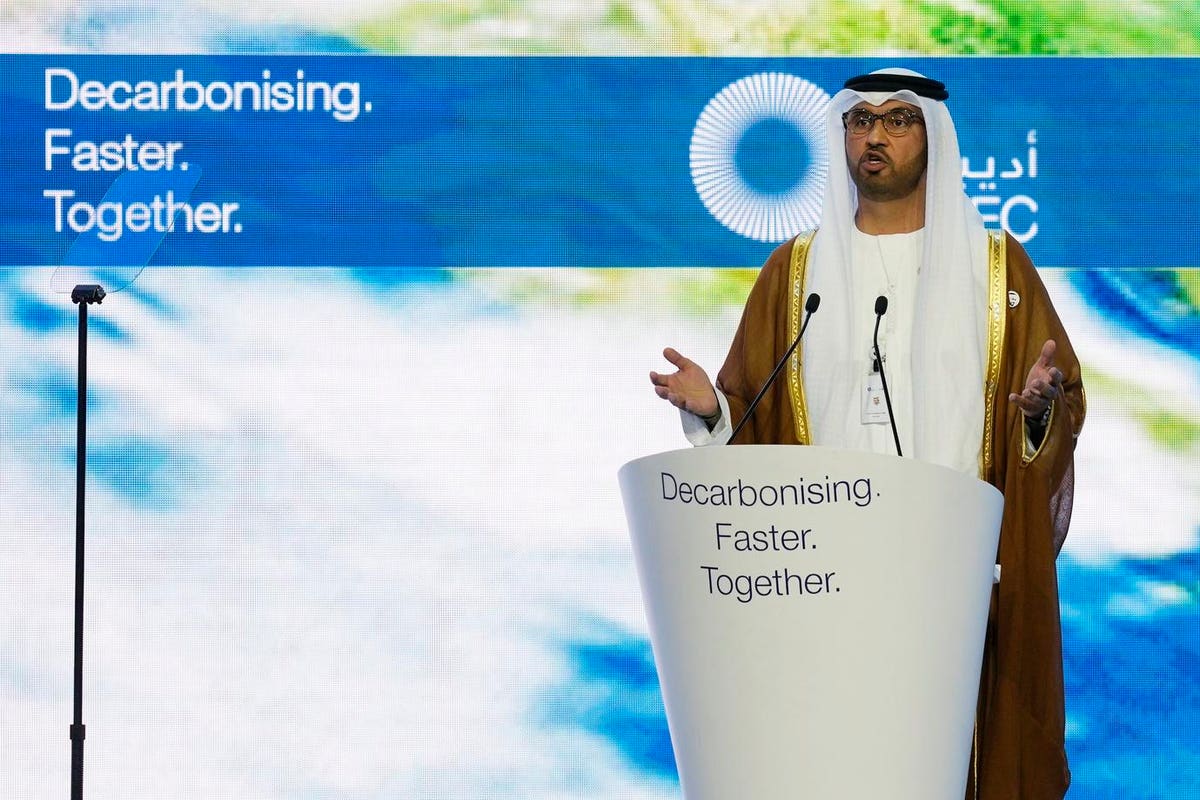The President-designate of fast approaching United Nations COP28 climate talks and group CEO of the Abu Dhabi National Oil Company (ADNOC) has called for an energy transition that is “just, orderly, equitable and responsible.”
Speaking at the Abu Dhabi International Exhibition and Conference (ADIPEC) on Monday (October 2, 2023), in Abu Dhabi, United Arab Emirates (UAE), Sultan Ahmed Al-Jaber said oil and gas companies should be “central” to envisaging global decarbonization pathways.
“That is our North Star. It is, in fact, our only destination. It is simply acknowledging and respecting the science,” he added. “But we must do this while also ensuring human prosperity by meeting the energy needs of the planet’s growing population.”
ADNOC itself has the capacity to pump 4 million barrels per day (bpd) and is hoping to scale it up to 5 million bpd. This has led to criticism of Al-Jaber and the UAE’s leadership of COP28. But the man at the center of it all noted: “A phase-down of fossil fuels is inevitable. In fact, it’s essential. Yet, this must be part of a comprehensive energy transition plan that is fair, that is fast, just, orderly, equitable and responsible.”
And addressing industry peers, he added: “For too long, this industry has been viewed as part of the problem, that it’s not doing enough and, in some cases, even blocking progress. This is your opportunity to show the world that, in fact, you are central to the solution.”
The ADNOC boss, who also serves as the UAE Minister of Industry and Advanced Technology, pointed out that 20 oil and gas companies had pledged to be net zero either by or before 2050, as well as eliminate routine gas flaring by 2030. ADIPEC as an event is also carrying the tagline that sounds more like a rally call to arms of “Decarbonising. Faster. Together” – a message he fully endorsed.
Following Al-Jaber’s headline remarks to ADIPEC, Haitham al-Ghais, Secretary General of the Organization of Petroleum Exporting Countries (OPEC) also defended the industry’s approach as well as its role.
“We see calls to stop investing in oil. We believe this is counterproductive. The cornerstone of global economic prosperity today is energy security,” Al-Ghais said.
The remarks come at a time when the oil industry has largely completed its bounce back from negative oil prices during the early months of the Covid-19 pandemic in 2020. Both the global proxy crude oil benchmark Brent as well as the West Texas Intermediate are currently trading near 12-month highs of around $92 and $90 per barrel respectively.
Read the full article here





